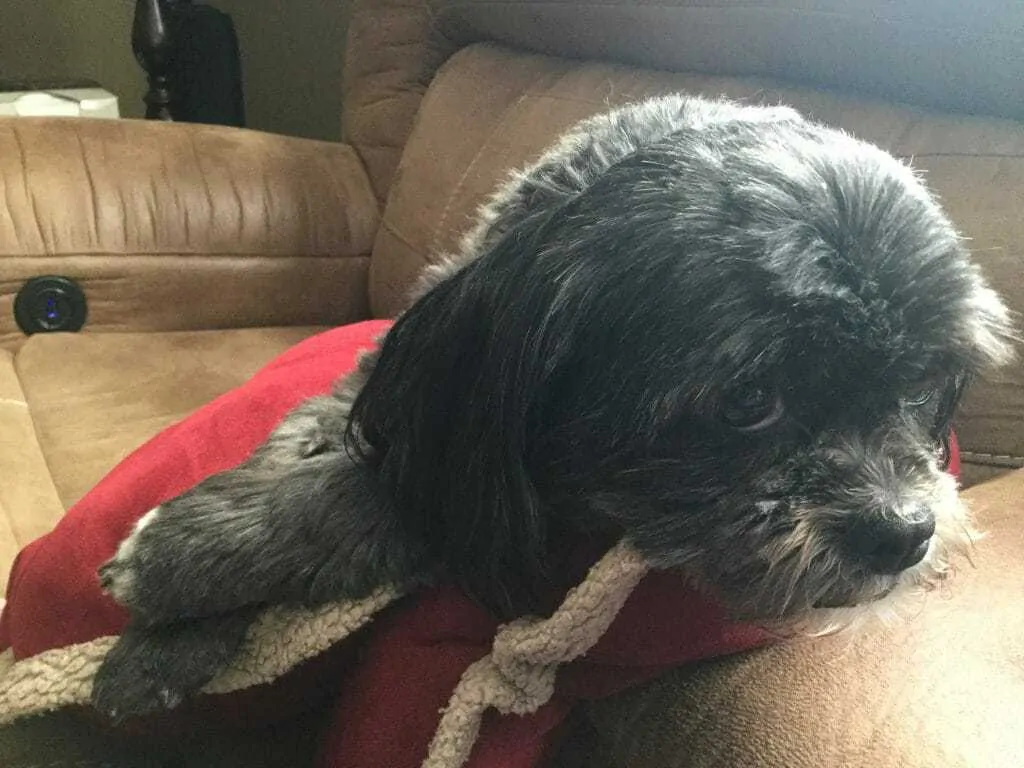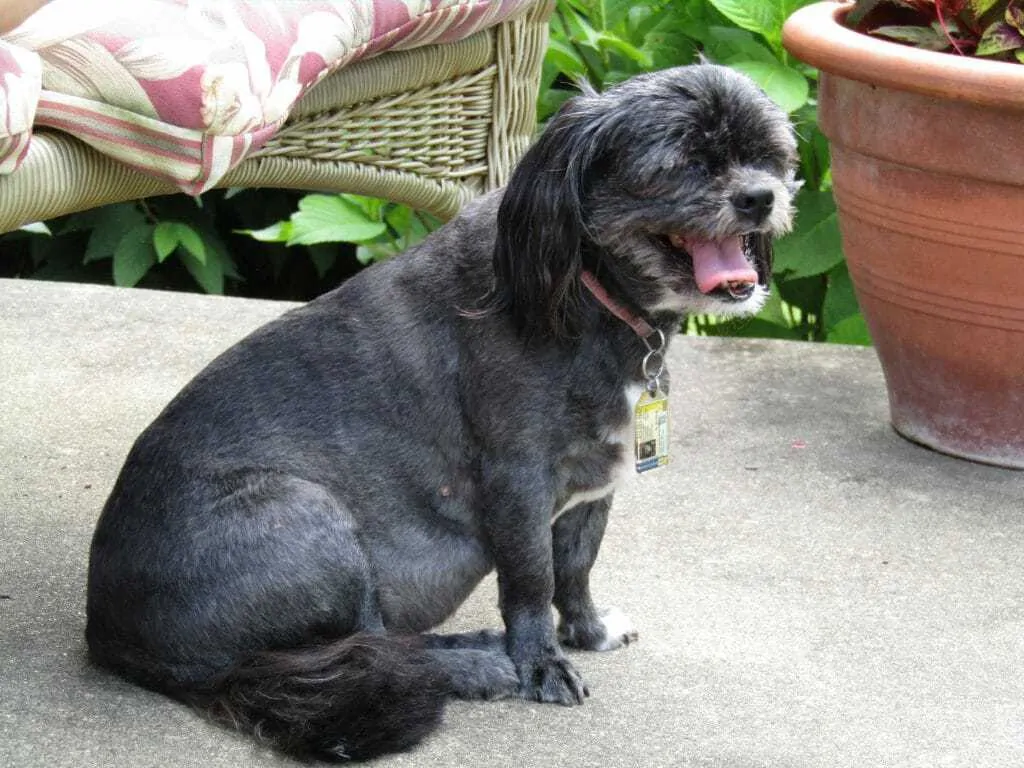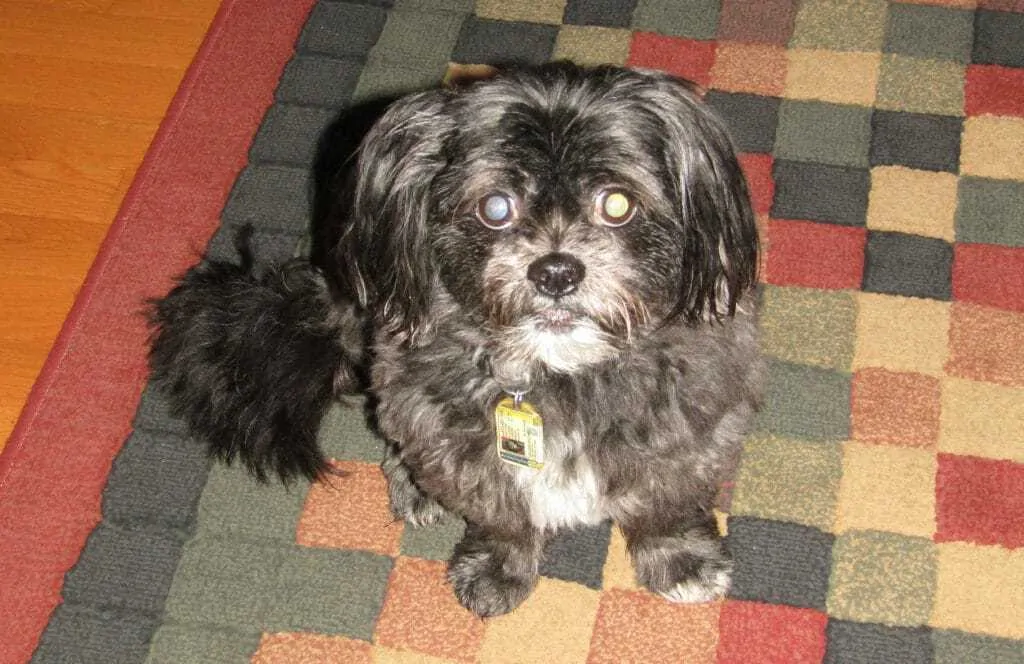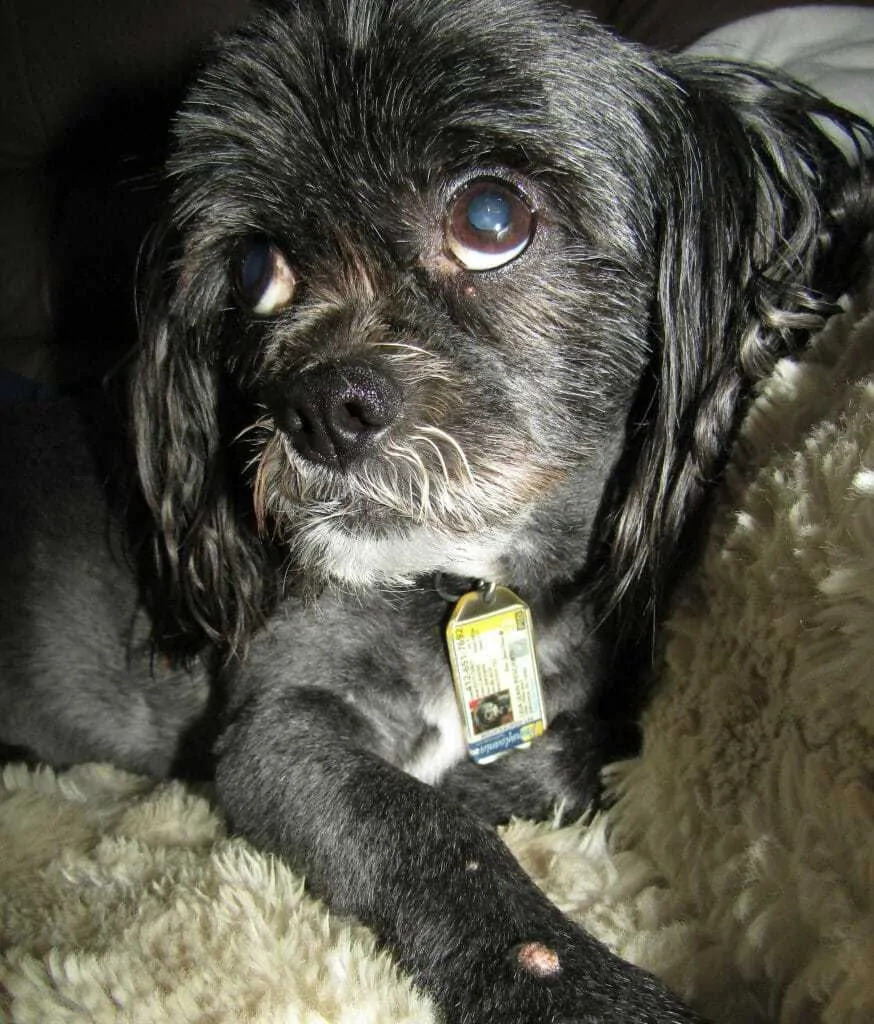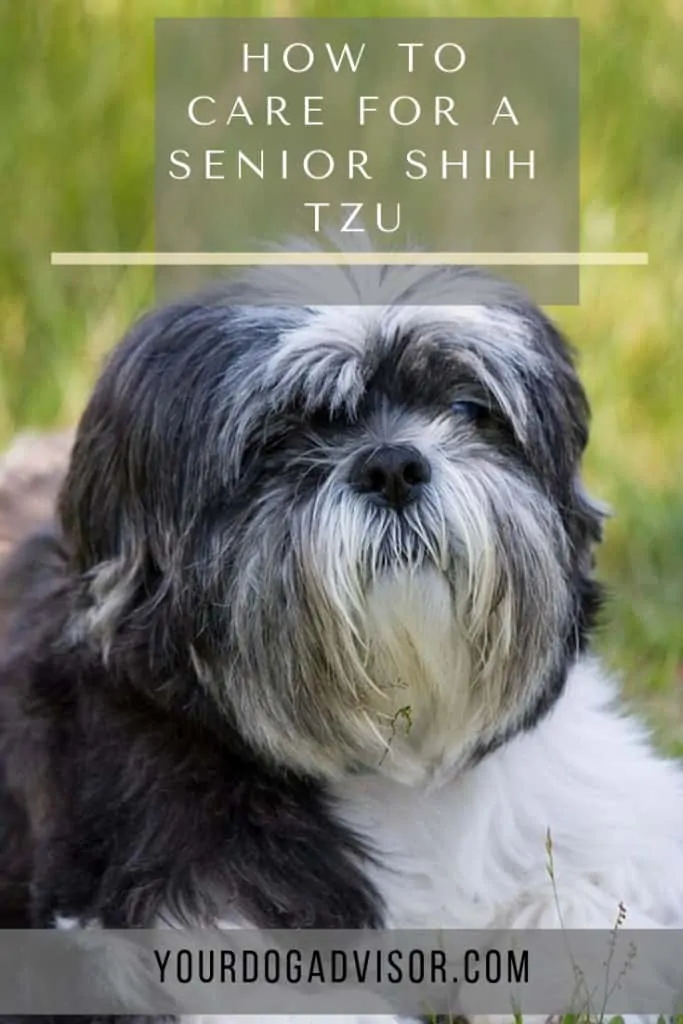The Shih Tzu is a long-lived breed with a lifespan of 10-18 years according to the America Kennel Club which leads most vets to classify a nine to 10-year-old as a senior. My Shih Tzu, Leia, celebrated her 12th birthday this summer and has been experiencing many of the age-related issues common in small breed dogs as well as some that are specific to the Shih Tzu. With added patience and special care, Leia is living a full and happy life. Here are some of her most pressing concerns and the accommodations to best support and care for a senior Shih Tzu.
Leia relaxing in the shade.
Contents
Aches, Pains, and Mobility Issues
The first sign of Leia’s age was stiff and achy joints. Long walks left her favoring one of her front paws. She wasn’t especially happy to get up in the morning and often hobbled around for a bit after a night’s sleep. At times she could be quite grumpy. As she aged, Leia lost muscle tone in her back legs and hasn’t been able to jump onto some of the higher beds in our home. After a visit to the vet to rule out disease or injury, I made a few changes to our routine.
Glucosamine Chews — Glucosamine can take a few days to build up in your Shih Tzu’s system, so follow the dosing instructions on the package. The change in Leia was evident after one week. She stopped limping and her enthusiasm for hiking with the family was renewed. Leia enjoys a glucosamine chew every morning.
Orthopedic Bed — Often small dogs have small pet beds, but your senior Shih tzu may prefer to stretch out. Leia used to sleep in her crate every night, but an extended period of time in that enclosed space now tends to make her stiff. She prefers to stretch out on her large breed size orthopedic bed.
Pet Stairs — There are a variety of solutions for providing access to the high places where a Shih Tzu wants to perch. Leia hasn’t adapted to using stairs, probably because my husband is committed to lifting and carrying her wherever she wants to go. It’s important to monitor your Shih Tzu as they navigate their environment. The senior Shih Tzu may need a new way to access the master bed, help going up or down stairs, or restricted single level living as they age. Trips and falls add to the usual aches and pains and can even cause lasting damage, so be sure to help if your dog is unsure of taking a leap even if it’s one that used to be met with confidence.
Make sure your senior dog has access to their favorite high places even when they can no longer make the jump on their own. Leia loves to get on top of the highest stack of pillows possible.
Exercise and Weight Management — Keeping your Shih Tzu fit and active is the most important thing you can do to keep the aches, pains, and mobility problems of age at bay. Even if you’ve been indulgent with food and treats in the past, it’s best to feed a senior dog a high-quality diet in only the recommended amount. Leia is always hungry. Twelve years with me has not convinced her that begging won’t result in table scraps. She tries multiple times per day for extra treats. Remember the long-term benefits of maintaining a healthy weight and find ways other than food to show your affection.
Dog Massage – Massaging aching muscles benefits you and your dog. It’s a great way to bond and a calorie free way to show affection. Leia especially enjoys a rubdown after a long walk.
Vision Changes
Leia’s eyes began to cloud a couple of years ago. The vet mentioned that she might become unsure in dark rooms and sure enough, within a month Leia would wait for someone to switch on a light before entering a dark room. A motion sensing light could give your senior Shih tzu greater confidence at night.
Sensitivity to Temperature
Leia demonstrating that she’s a bit too hot on a summer’s day.
Leia has always been unhappy in the cold, but a new development of the senior years is her intolerance to heat. Warm temperatures cause her to pant heavily. She even gets too hot in the house when her coat is long. Leia is much more comfortable with a short puppy cut during the summer months. In hot weather we walk early in the morning or late in the evening on shady paths. During the heat of the day your Shih Tzu will be most comfortable in a space with air conditioning. Check with your groomer if you Shih Tzu seems too hot even in a cool room. It might be time for a new hairstyle.
Longer hair is great for a Shih Tzu when the weather is cool, but your dog will often need a haircut when it warms up.
Lumps, Bumps, and Warts
Like many other breeds, the Shih Tzu will grow lumps and bumps with age. Most are nothing to worry about and after being checked by the vet can be managed easily.
Take care that your Shih Tzu’s harness isn’t rubbing any skin growths. Contact from the harness or collar can cause bleeding or scabbing. Sometimes the growth will have to be removed because it’s in an unavoidable area.
Notify your groomer of spots that need extra care. Running a clipper right over your senior dog’s lumps and bumps can be painful. Grooming can cause bleeding or even lead to infection. The groomer will need to go around certain spots with extra care. If a certain wart interferes with your Shih Tzu’s hairstyle, it may have to be removed.
This wart on Leia’s leg is clearly visible when her coat is trimmed. Though unsightly, lumps and bumps like these that don’t bother the Shih Tzu and have been cleared by your veterinarian are not a problem.
Additional Age-Related Problems
Fortunately, Leia hasn’t succumbed to all of the age-related issues that are possible for a Shih Tzu of her age. Around your dog’s ninth or tenth birthday, keep an eye out for the following additional age-related problems:
Difficulty Hearing — Just like humans, hearing sensitivity can decrease with age in dogs. You might notice your Shih Tzu ignoring commands or failing to turn up at the sound of a treat bag crinkling. This could be indicative of hearing loss that will require you to change routines for your deaf or hard of hearing dog.
Incontinence — After enjoying almost a decade of perfect potty training, it can be difficult to accept that your senior Shih Tzu may not have the same holding power they did in their younger days. Some older dogs seem to simply forget their routine. A senior dog may need more chances to eliminate through the day, dog diapers, or piddle pads.
Dementia — Senior dogs with dementia can experience memory problems, changes in mood and activity level, and incontinence. If you notice changes in your senior Shih Tzu’s behavior, it could be due to Canine Dementia. There are a variety of prescribed medications, dietary changes, and supplements to manage the condition.
Special Care for Seniors
A senior Shih tzu goes through many changes and will need special care. Always start with a trip to the vet to rule out serious problems. At home you can do much to improve your dog’s golden years by being attentive and offering extra support to overcome the challenges that come with age.

